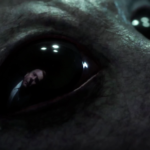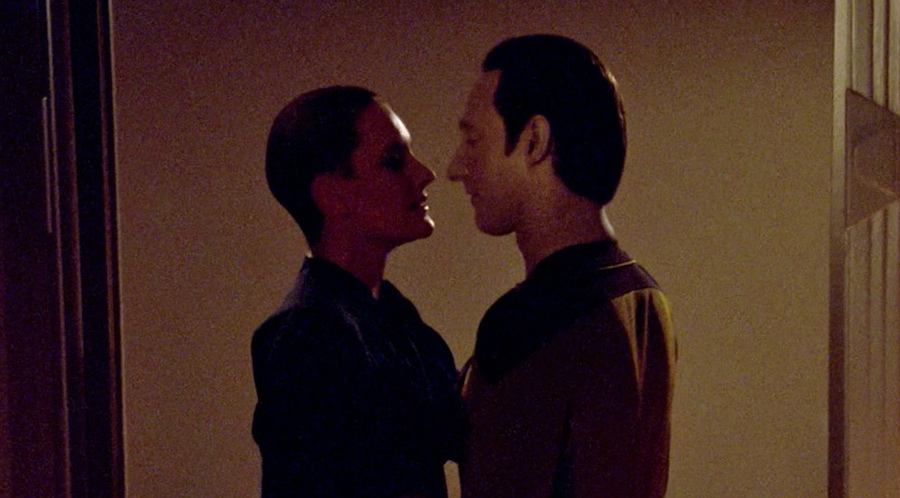
Star Trek is sexy. The series began with a dancing, green-skinned woman and clad its cast at various points in miniskirts and leotards. Captain Kirk and his spiritual successor Commander Riker show alien women what this thing called love is, Spock literally goes into heat, Klingon sex apparently incorporates poetry and throwing things, and the cutest alien of all, the Tribble, lives only to breed. After 725 episodes and 13 movies (so far), Star Trek has given us seductive salt vampires, sex bots, mating rituals, sexual performance enhancers, mind rapey telepaths, a holodeck where you can play out any sexual fantasy, and shirtless Riker. The show even gave us the first major slash ship in fandom, as fans of the show published whole fanzines about Kirk and Spock finally getting together. Yeah, Star Trek is sexy.
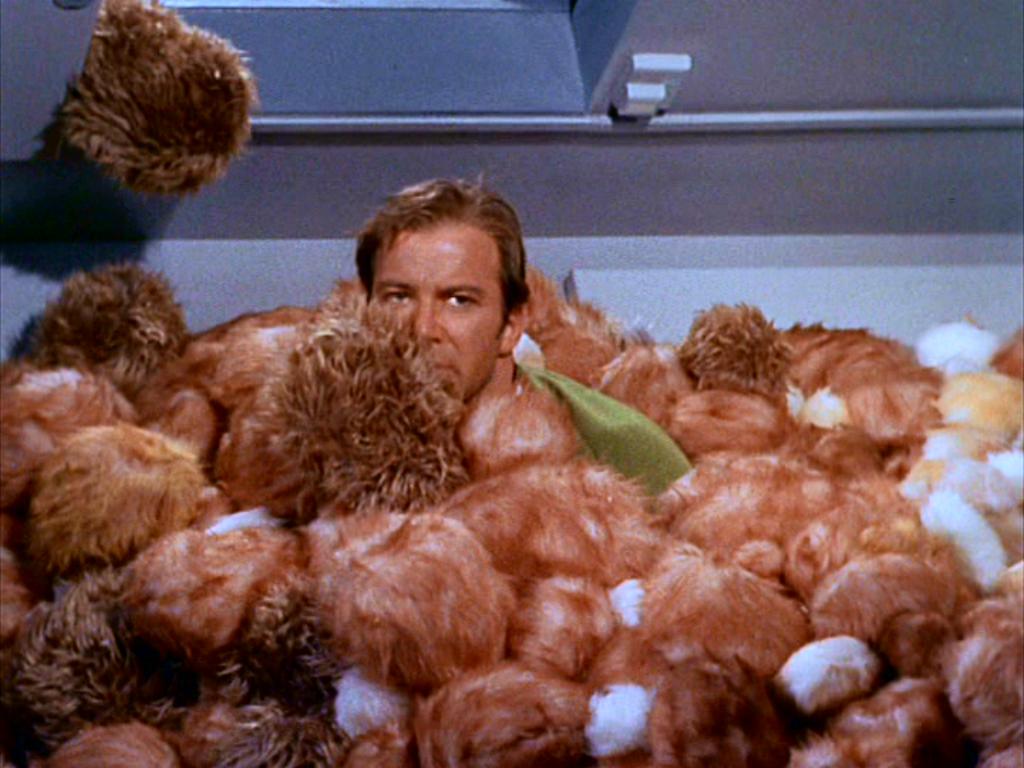
Yet for a show that practically oozes sex from every episode, not a lot of actual sex happens. Some of that is because of codes and ratings, and sex sometimes happens through heavy implication and thinly-veiled innuendo. Even taking that into account, sex is rare in Star Trek. Kirk beds far fewer women than the average sitcom schlub and almost none of the crew in any of the shows are in successful long-term relationships. For a utopian future that seems to be fairly sex-positive, very few of our intrepid crew are getting any.
In fact, Star Trek sexiness has a fairly dark history, and I’m not just talking about Carol Marcus in Star Trek Into Darkness baring her bra for the trailers. Gene Roddenberry may have wanted Star Trek to represent a utopian future, but the actual show is riddled with the hangups and problems of the time in which it was made. And the main issue that we find again and again throughout Star Trek is the problem of consent… or lack thereof.
While healthy sex is rare in Star Trek, rape is rampant. I found that out when I tried to show one of my friends representative episodes of Star Trek TOS, as she’d just fallen in love with the Abrams movies. And every episode I remembered being harmless fun was riddled with rape. In “Space Seed,” Khan gaslights and tortures a woman, and it’s treated as love. In “Mirror, Mirror,” Uhura has to fend off an extra-rapey mirror Sulu. In “”The Gamesters of Triskelion,” Uhura is straight up raped. In “This Side of Paradise,” Spock has sex after a woman dopes him up with plant spores. Even the history-making first interracial kiss between Kirk and Uhura happens because they’re forced to do it by sadistic telepaths. The Next Generation and later iterations try to do better, but that usually means the rape happens by implication or metaphor.
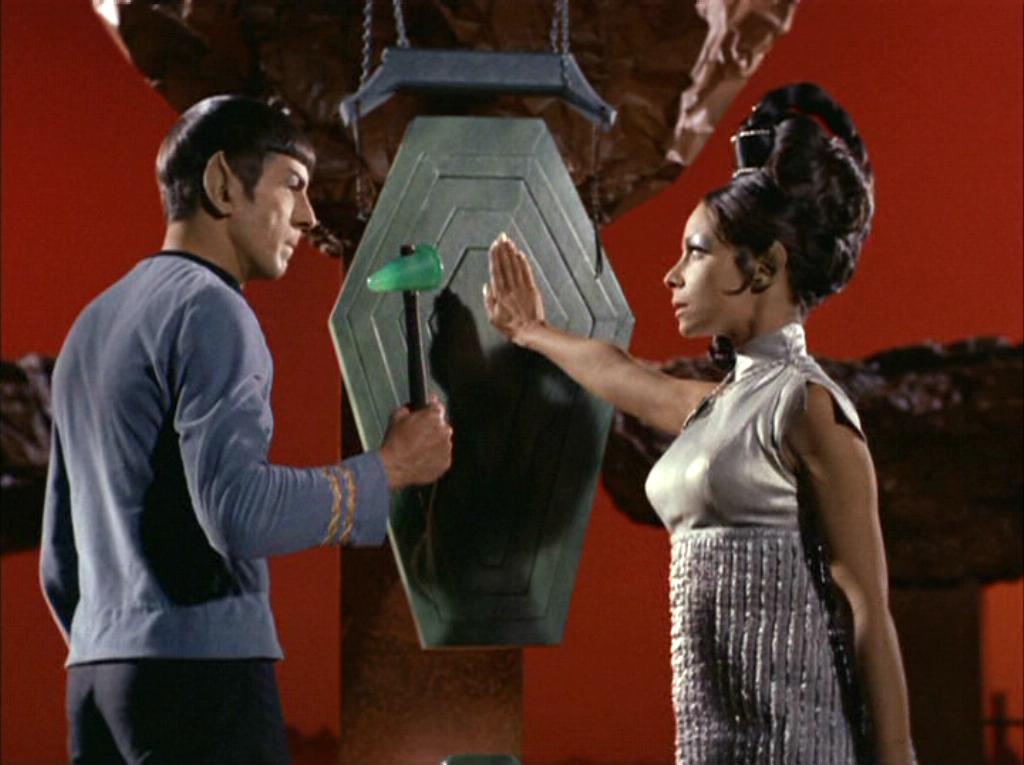
Let’s take a closer look at the two examples given in the title of this article. First, let’s talk about Pon Farr. The episode “Amok Time” opens with Spock going through some kind of emotional upheaval, and has he’s a character in strict control of his emotions, this is cause for concern. We eventually find out that Spock is basically going into heat (or is it rut?), and he has to go home to take part in a mating ritual. During the ritual, his potential paramour T’Pring chooses another mate, Kirk, to initiate trial by combat, reasoning that no matter what happens, she will be free to be with her true love, Stonn. The episode is one of the best of the original series, exploring Vulcan culture, deepening Spock’s character, and showcasing the friendship between the main three.
The sexuality of Pon Farr, though, is filled with problems. On one hand, it seems as if the cold and rational Spock being given over to uncontrollable passion is an example of a man being sexually objectified without giving consent. After all, Spock has few choices. His actions are all determined by his own hormones and the cold women who surround him and maneuver him however they want. But, then, isn’t that the “boys will be boys” mentality that is at the center of rape culture? The boy can’t help it, his sex drive is too much for him to handle! And it’s all the woman’s fault anyway, right? Therein lies the problem. Spock is entirely innocent due to alien biology and tradition, but the show was not written for aliens. It represents a larger culture of excusing male sexuality while punishing female sexuality. The episode literally opens with Nurse Chapel trying to give Spock soup and Spock violently throwing her and the soup out of his room, an act of domestic violence that the show excuses and minimizes. Male violence is shown as natural and a reasonable response to female action.
Let’s take the other titular example, the early TNG episode “The Naked Now.” A tribute (and partial copy) of the TOS episode “The Naked Time,” the crew of the Enterprise encounter a virus that approximates the effects of being drunk. During the shenanigans, Tasha Yar, the driven and tomboyish security chief, raids the more feminine Deanna Troi’s wardrobe and goes trolling for sex. When the android Data is sent to retrieve her, she jumps on the opportunity to, well, jump him, especially after he informs her that he is “fully functional.” Even though Data is mostly machine, sex is apparently enough to infect him with the drunk virus.
At first glance it just seems like a drunk hookup, with attendant regret on Tasha’s part at the end of the episode (“It never happened,” she informs Data). Tasha is in fact the sexual aggressor. Yet, as she is drunk, she is entirely incapable of giving consent. Other characters infected are treated as people who are sick: they’re put in quarantine, they’re not held responsible for their actions, and people try to defuse the situations they’re in. Yet when Tasha decides to have sex with Data, Data goes along with it, even though he can safely get away and he is in no way affected by the virus yet. As much as it kills me to say it, as a dyed in the wool Data fan, Data takes advantage of Tasha. What makes the scene even worse is Tasha’s backstory: Tasha grew up orphaned on a post-apocalyptic planet running from “rape gangs.” It is entirely plausible that Tasha’s backstory includes rape, and by the second episode she’s being raped by a superior officer while drunk.
As I’m typing this, the rapist Brock Turner has recently been released from prison after he served only half his six-month sentence for raping a drunk and incapacitated woman behind a dumpster. I’m again hearing the same conversations about rape culture: the “boys will be boys” attitude, the protection of men’s futures at the expense of women’s bodies, the “she was drunk” and “she manipulated me” and “she really wanted it” victim-blaming excuses. And the thing is, people know that rape is wrong. That’s not what we mean by “rape culture.” What we mean by “rape culture” is that, in a thousand tiny ways, our toxic attitudes toward gender and consent are normalized, and we have to work to resist justifying the rapist and blaming the victim.
Star Trek is, unfortunately, part of that rape culture. However, there is still hope. Roddenberry had a vision for a utopian future, and that’s what Star Trek is at its best. As Picard puts it in the movie Nemesis, “that is what it is to be human. To make yourself more than you are.” We can learn from the hope the philosophy of hope from Star Trek far more than we can from the murky reality.
To end on a lighter note, I want to talk about the character with the healthiest sex life in Star Trek: Commander William Riker.
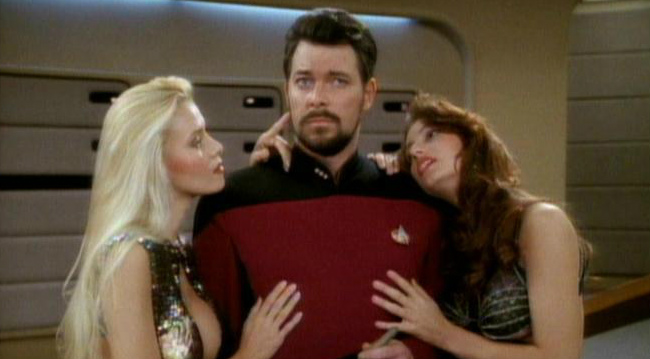
Riker was meant to be the swaggering action hero in the style of Kirk to act as a counterpoint to Picard’s more restrained and cerebral style of leadership. He’s characterized as a “lady’s man,” and is one of the few characters in the show to engage in multiple sexual relationships. Yet, through all that swagger, he is actually very careful when it comes to respect and consent. Every single one of his sexual encounters are consensual. While he lightly flirts and goes on dates, he never seduces or forces: he’s not a pick-up artist. In fact, since he’s second in command of the Enterprise, he has to be very careful about sexual encounters, since his rank gives him undue power in any relationship, and he seems to navigate the power dynamics successfully by always allowing the woman to set the pace. Throughout all of Riker’s relationships and sexual encounters, which include various crewmates, dominant women from a matriarchal society, and a female-identifying scientist from a nonbinary species, Riker waits for enthusiastic consent and treats the women as sentient beings with agency of their own.
We can see his healthy attitude in his relationship with Deanna Troi. Prior to their tenure on the Enterprise, Riker and Troi were in a serious relationship, serious enough that they became telepathically linked and call each other Imzadi (a tradition from Troi’s homeworld of Betazed, and FAR better than Pon Farr). They separated because of their careers, and they continue their professional relationship on the Enterprise. While the show plays them as a will-they-won’t-they couple, the real lesson we can take from their relationship is how they can remain friends and coworkers even through their sexual past and present attraction. They never get jealous of each other, and Riker even finds it ridiculous when Worf feels the need to ask his permission to date Troi. For Riker, Troi is her own person on completely equal footing as he, and that’s what makes their relationship work.
Perhaps the best (or, really, the only good) thing about the final TNG movie Nemesis is that Riker and Troi finally get married, and it’s the marriage of two good friends who have worked through their own issues and decided that they truly want to be together. A healthy relationship that ends in a healthy marriage in Star Trek. Who knew?



